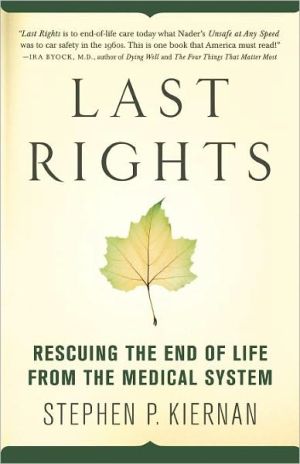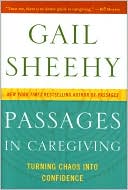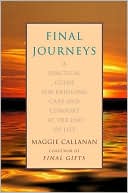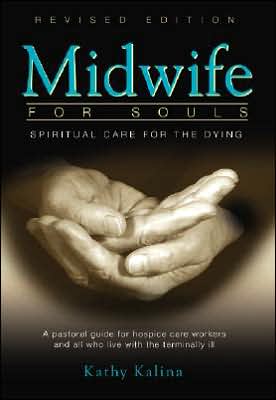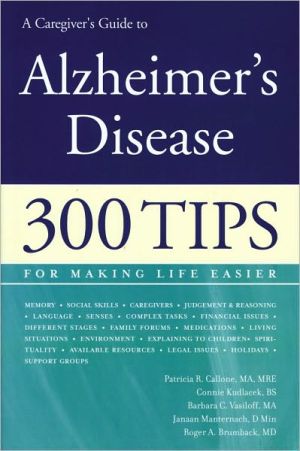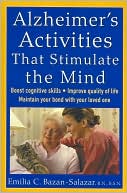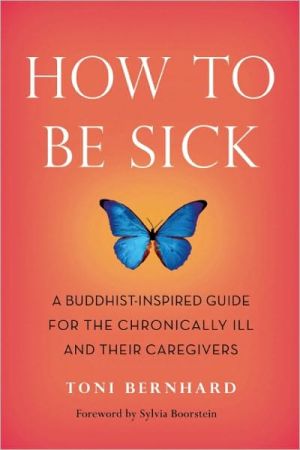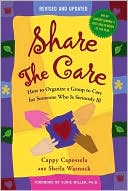Last Rights: Rescuing the End of Life from the Medical System
“Gripping…A superb resource for boomers dealing with their parents’ final days…as well as for health-care professionals who need to hear this story from the other side.”\ --Kirkus Reviews\ With advances in medicine, technology, and daily diet and exercise practices, Americans are living longer than ever before. We have an unprecedented opportunity for meaningful closure – free of pain, among loved ones, with our affairs in order and spiritual calm attained. Instead, most of us discover that...
Search in google:
• Half of people who die in hospitals today suffer severe untreated pain. • Residents were abused in one-third of U.S. nursing homes in 2003. • Health expenses are the nation’s leading cause of personal bankruptcy. • Only six U.S. medical schools require students to take a course on care of the dying. These are just a few of the incredible findings award-winning journalist Stephen P. Kiernan reveals in Last Rights, an exposé of America’s substandard care of people who are dying. Recent medical advances have dramatically reduced sudden causes of death like heart attacks, strokes, and accidents. Today people’s lives end slowly, giving them an unprecedented opportunity for meaningful closure---free of pain, among loved ones, with their affairs in order and spiritual calm attained. Instead, most Americans discover that their doctor has minimal training in providing the care they need, and will seek to extend life no matter how painful, expensive, and futile that effort might be. Patients and families watch as their wishes are ignored. They experience a nightmare of hospitals, specialists, high-tech treatments, and helplessness dealing with a medical system that means well but does not listen. It doesn’t have to be that way. In Last Rights, Kiernan tells the stories of people who died after enduring avoidable pain and needless indignities. More important, he shares the stories of people whose last days were pain free, who lived life fully right to the last moment. Above all, he shows how patients and families can regain control of the dying process, creating familial intimacy like never before. Bolstered by both scientific research and intimate portraits of people from all walks of life, Last Rights offers a hopeful, profound vision for patients, doctors, and families: a way to honor people during their greatest vulnerability, a chance for families to reconnect, an opportunity for the medical system to treat patients with ultimate respect, a time to give comfort and compassion to those we most love. Stephen P. Kiernan has written for The Boston Globe and other publications, and for fourteen years wrote for the Burlington Free Press as a columnist, editorial writer, and investigative reporter. He received the George Polk Award for medical reporting, the Joseph Brechner Center’s Freedom of Information Award, and has been a two-time finalist for the Gerald Loeb Award for Financial Journalism. Kiernan lives with his two sons in Vermont. Visit www.stephenpkiernan.com. Library Journal Most people find it difficult to face their own mortality and that of their loved ones. This book compassionately and skillfully addresses this difficult, emotional issue. Kiernan, a journalist with the Burlington Free Press (VT), discusses the disconnect between how people want to spend their last days and how they actually end up doing so. While most desire to feel no pain, functioning mentally and physically and surrounded by family, the reality is that the majority of us will actually die in hospitals, where extreme medical interventions are undertaken at immense costs and with little regard to pain, human comfort, or the stated wishes of the dying and their families. Kiernan argues that most physicians and other healthcare professionals do not know how to deal with death because textbooks and medical schools fail to address the issue adequately. His final chapters present a broad agenda to improve end-of-life care at both the societal and the individual levels. This well-written and thoughtful book, filled with surveys, interviews, and personal portraits, is highly recommended for all public libraries and consumer health collections.-Ross Mullner, Sch. of Public Health, Univ. of Illinois, Chicago Copyright 2006 Reed Business Information.
Last Rights\ Rescuing the End of Life from the Medical System \ \ By Kiernan, Stephen P. \ St. Martin's Press\ Copyright © 2006 Kiernan, Stephen P.\ All right reserved.\ ISBN: 9780312342241 \ \ \ Chapter One \ Last Hours\ \ On the final night of his life, Jack happened to glance out the window just before eleven and notice that it was snowing: fat flakes cascading past the porch light, changing direction in a puff of wind like a school of fish veering from a predator.\ \ Had Jack known what lay ahead, the seven hours left to him, he might have done something other than turn back to the television. He might have reached for the phone and called his daughter, a college freshman, to send her his love and let her tap him for spending money one last time. He might have climbed the stairs to his son’s room, interrupting that bookish boy’s latest fascination for a discussion of how to help his mother weather widowhood. Jack might have gone to his wife, already in bed, to plan for life without him or remind her where his will was stored or revisit their fondest memories like jewelers scrutinizing rubies. He might simply have decided to go to the window, to watch the snow and contemplate the infinite.\ \ Instead, Jack plunged his hand into a bag of potato chips, washed a mouthful down with the warm dregs of a beer, and watched the Celtics lose in overtime. He lit a cigarette, an unfiltered Camel—he reasoned thatif you’re going to smoke, you might as well taste it. Though he’d never seen the Celtics play in person, in the morning his loyalty would cost him both five bucks and a razzing from Bo, a coworker buddy who favored the Lakers.\ \ It was December 1, 1976, a Monday, and too early for snow. Jack switched off the TV, crushed out his smoke. With a beefy forearm he gathered the empties against his stomach and shuffled into the kitchen.\ \ After shoving everything into the trash, Jack went back through the house dousing lights. He moved slowly, aware that lately the furniture crowded him because he’d put on so much weight. Always a hefty guy, Jack now had a bona fide belly, a smoker’s cough he hacked through some mornings, a general sluggishness in his blood. He would have gone to a doctor, but why bother when you already know what the problem is? You’re getting older, fifty-six in April, and the beer and the sweet tooth and the butts and the lack of exercise have a bigger effect now than when you were twenty-six. Jack put a hand on his lower back as he bent down to turn off a table lamp. Yes, he should cut down. And exercise. Definitely quit the Camels, God forbid. But a man cannot be disciplined about everything. A man who has worked hard all his life also deserves some pleasures, doesn’t he?\ \ This line of thinking was so familiar that it was nearly furniture, too. Room by room, Jack flicked switches and left darkness behind him. At the top of the stairs he paused, dimly aware of his heart laboring but also hesitant. Was he forgetting something?\ \ Of course he was. Jack was experiencing many of his life’s last sensations and emotions. Yet he did not know. He did not pause to savor, to think: this is the taste of warm beer, bitter yet pleasant; this is the holy hush of snow falling; this is the unique sibilance of an empty potato chip bag being crushed into the trash.\ \ Instead, there would be no last words, no consummate gesture, no muttered prayer. Jack did not know that this was his one opportunity to say good-bye.\ \ He glanced into his son’s room, but the boy was reading and Jack did not interrupt. He passed his daughter’s room, missed her a moment, then went into the bathroom to brush his teeth.\ \ “It’s snowing,” Jack called through the open door to his wife. “Really coming down.”\ \ But when he entered the bedroom Jack saw that she was already asleep. A novel lay open on her lap. He placed the book on the bedside table facedown but still open, so as not to lose her place. It was a little gesture, miniscule really. But she would notice it when she moved the novel again the following night, putting it away on a shelf—she would set aside all reading for many months. At that moment twenty-four hours later, her world having changed utterly, Jack’s care over so small a thing would touch her in a deep and previously unknown place. For now, though, she dozed.\ \ Jack climbed into bed and shut off the light. Six hours left. Did his mind, then, turn over the lessons of his life? Did Jack’s soul ache at all he was about to lose, so that he reached for his wife and sought the comfort of one last embrace? Did he fear what might come after death—a reckoning perhaps, or bliss, or nothing at all?\ \ No, Jack remembered that the mortgage was due on the third, Wednesday, and he would have to drop off the check on the way to work to avoid paying the late fee.\ \ He shifted his pillow. Lately he’d been folding it over to raise his head while he slept. It helped him breathe, and his wife said he snored less. Jack felt a mild indigestion, that December Monday nearing midnight, but he ignored it and the sensation soon passed.\ \ Then there was only the dark, the quiet house, and in time, dreams. Even on the cusp of ceasing to exist, there are dreams.\ \ \ The alarm buzzed in darkness and Jack slapped it off: 5:45 a.m. Forty minutes left. Out the window he saw six inches of fresh snow.\ \ Jack was born on April 8. He and his wife celebrated their August 1 anniversary twenty-nine times. He observed holidays and remembered Mother’s Days and kids’ birthdays and anniversaries of starting jobs. Jack oriented the compass of time with meaningful dates throughout the year. Yet never had he given a moment’s thought to his life’s fifty-five unremarkable December 2s. Jack’s family will remember, though. His son will note the date solemnly every year, honoring his father while in turn ignoring the May 25 that waits with cold patience for him.\ \ Down in the kitchen Jack lit a cigarette, squinting against its smoke as he dug through the hall closet for his boots and parka. A slug of coffee, and out he shuffled into the gray morning. Grabbing a snow shovel, Jack started at the garage and worked his way back. The first few pulls tightened his shoulders. The stuff was heavy. Upstairs the bathroom light went on, meaning his wife was awake, and he began to hurry.\ \ Jack was halfway home when he felt one of his smoking coughs coming on. He straightened, trying to deep-breathe it away. But the air felt as though it went somewhere other than into his lungs, down into his left arm somehow. And when he exhaled, in the place where the breath had been there was a powerful ache. Jack frowned at his arm as if it belonged to someone else. The pain intensified. He leaned the shovel against himself and rubbed his shoulder. How could so small an exertion hurt so much?\ \ A sledgehammer of pain struck Jack in the chest. His body seemed to fold around it. He clutched the shovel for balance, as if staying upright were the most important thing imaginable. Then Jack’s knees buckled, slamming his face down on the shovel’s handle and giving him an instant nosebleed. He leaned to the right, curling around the massive stab in his core. The snow, with an arc of red from his nose, cushioned his fall.\ \ Whatever was happening, Jack thought, it was going to take over the day. The mortgage payment would definitely be late. Already the world was developing a vagueness. The cold against his cheek, the tightness in his lungs—they grew distant. The early daylight in some kind of ebb. Even the pain became strangely remote.\ \ Jack’s eyes roved, and he thought to ask: “Anyone?”\ \ Minutes later his wife, humming along with the radio, glanced out the bathroom window. She saw Jack’s form, prone amid a spray of red. She screamed and screamed.\ \ \ What is the imprint a body makes when it falls? Later that morning, when Jack was lifted from where he lay, with all the care that experts in that grim line of work can provide while nearby a stricken wife and son watch, the outline he left was no snow angel. No, if you take a man in a loose parka and tip him sideways with a shovel in his hand, the shape that remains is strange but familiar: a human form, hooded and cloaked, and in his merciless grip the tool that spares no one, the scythe.\ \ Copyright 2006 by Stephen P. Kiernan. All rights reserved. \ \ Continues... \ \ \ \ Excerpted from Last Rights by Kiernan, Stephen P. Copyright © 2006 by Kiernan, Stephen P.. Excerpted by permission.\ All rights reserved. No part of this excerpt may be reproduced or reprinted without permission in writing from the publisher.\ Excerpts are provided by Dial-A-Book Inc. solely for the personal use of visitors to this web site. \ \
Introduction xiThe Imprint a Body MakesLast Hours 6This Is the News 7A Baby and a Basketball Game 18A Dog Is Better Than a Pill 23So Much Potential 47Not an EmergencyWhat Is a Crisis? 51Possible Paths 55Still Alive 65Mysteries of Life 70Two Visions 72Heal ThyselfDoctors' Beginnings 77"Take Five Years" 82A Piece of Cake 88"This Was Medicine 95"Maybe I Can Make You Laugh" 103Barriers to Change 109Medicine and Love are Not the Same ThingOne Experience 127Families as "Problems" 130No One in Charge 138The Economics of Dying 152The Most Important Time 159Smelling the Roses"Her Wishes Were Totally Ignored" 179The Desire for Control 183Dreams Coming True 191The Final Caress 207"We Can Celebrate" 216A Gift of SilverLobster Newburg 223A Bowl of Applesauce 233Illness As Opportunity 240The Lesson of the LeavesThe Endless Cycle 245An Agenda for Improvement 247Four Final Lessons 270Sources and Resources 277Acknowledgments 289Index 291
\ From the Publisher\ "Damn, I wish I'd had this book before my own father died. Part a guide to thinking through the policy questions surrounding the end of life, and part an informal handbook for helping with the deaths of your own loved ones, it also offers a final and supreme gift: the chance to begin thinking about what your own life means in the context of its inevitable end."---Bill McKibben author of The End of Nature\ "With an uncommon mix of stories and scholarship, Stephen Kiernan has described the challenges that remain at life's end, despite efforts to reform care over the past few decades. With candor, clarity, and an advocate's sense of urgency, he seeks to understand why our acute-care system has been so resistant to change and how we can infuse greater humanity to life's final chapter."---Joseph J. Fins, M.D., F.A.C.P., Chief of the Division of Medical Ethics, Weill Medical College of Cornell University, and author of A Palliative Ethic of Care: Clinical Wisdom at Life's End\ "Last Rites paints a frightening picture of the disorganized, deficient, and disastrous ways many people are cared for and die. Thankfully, Kiernan goes beyond exposé to uncover hopeful progress and practical ways to protect and nurture the people we love. Kiernan's Last Rites is to end-of-life care today what Nader's Unsafe at Any Speed was to car safety in the 1960s. This is one book that America must read!"---Ira Byock, M.D., Professor of Palliative Medicine, Dartmouth Medical School, and author of Dying Well and The Four Things That Matter Most\ \ \ \ \ \ Library JournalMost people find it difficult to face their own mortality and that of their loved ones. This book compassionately and skillfully addresses this difficult, emotional issue. Kiernan, a journalist with the Burlington Free Press (VT), discusses the disconnect between how people want to spend their last days and how they actually end up doing so. While most desire to feel no pain, functioning mentally and physically and surrounded by family, the reality is that the majority of us will actually die in hospitals, where extreme medical interventions are undertaken at immense costs and with little regard to pain, human comfort, or the stated wishes of the dying and their families. Kiernan argues that most physicians and other healthcare professionals do not know how to deal with death because textbooks and medical schools fail to address the issue adequately. His final chapters present a broad agenda to improve end-of-life care at both the societal and the individual levels. This well-written and thoughtful book, filled with surveys, interviews, and personal portraits, is highly recommended for all public libraries and consumer health collections.-Ross Mullner, Sch. of Public Health, Univ. of Illinois, Chicago Copyright 2006 Reed Business Information.\ \ \ Kirkus ReviewsAn impassioned appeal for a kinder, gentler death. George Polk Award-winner Kiernan, a reporter for the Burlington Free Press (Vermont), argues that last-ditch efforts to prolong life are leading causes of bankruptcy that also deprive the dying and their families of their dignity and peace of mind. He cautions that medical directives, which many assume will protect them from unwanted interventions, are routinely ignored by hospitals. Further, those who seek refuge in a hospice may be left out in the cold: A physician must attest that a candidate has six months to live, yet doctors are notoriously bad at estimating endpoints. Fewer Americans die of sudden illnesses or accidents, Kiernan notes. The majority linger with chronic illnesses like Alzheimer's or cancer, yet our medical system isn't equipped to handle those whose prognosis falls somewhere between "really sick" and "almost gone," nor to deal with their families, whose primary need may be respite care. The author sees some progress as hospitals begin to offer palliative measures designed to make final days more comfortable. He considers the benefits of a gradual death, which include greater intimacy with family members and time to plan for a conscious ending or to sum up a life. Kiernan tells how he and his siblings dealt with their mother's inoperable cancer, then turns the lessons they learned into a well-considered prescription for the entire population. He urges patients to fight for their right to die naturally; medical schools to devote more attention in their curriculum to the dying process; and policymakers to start making it easier for dying patients to receive adequate pain control. Gripping first-person stories andinterviews with exceptional caregivers make the human case for national reform. A superb resource for boomers dealing with their parents' final days and anxious to exert more control over their own rites of passage, as well as for health-care professionals who need to hear this story from the other side.\ \
